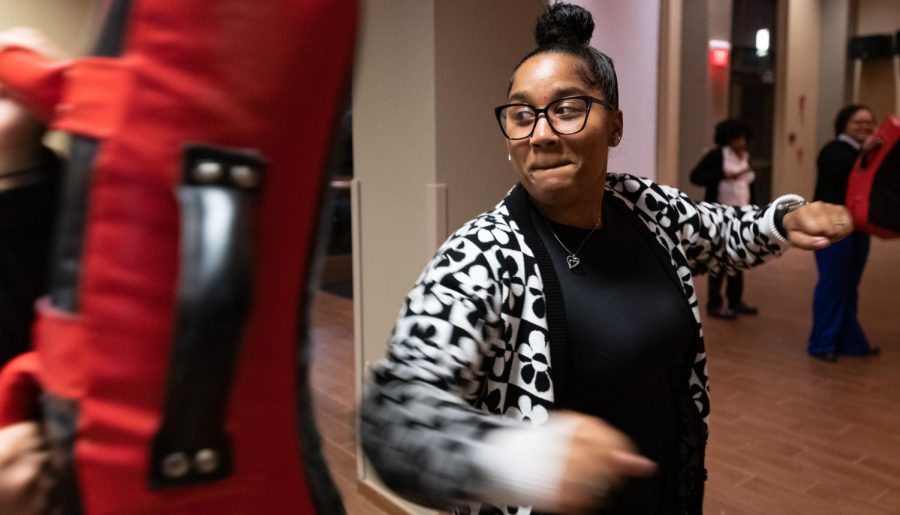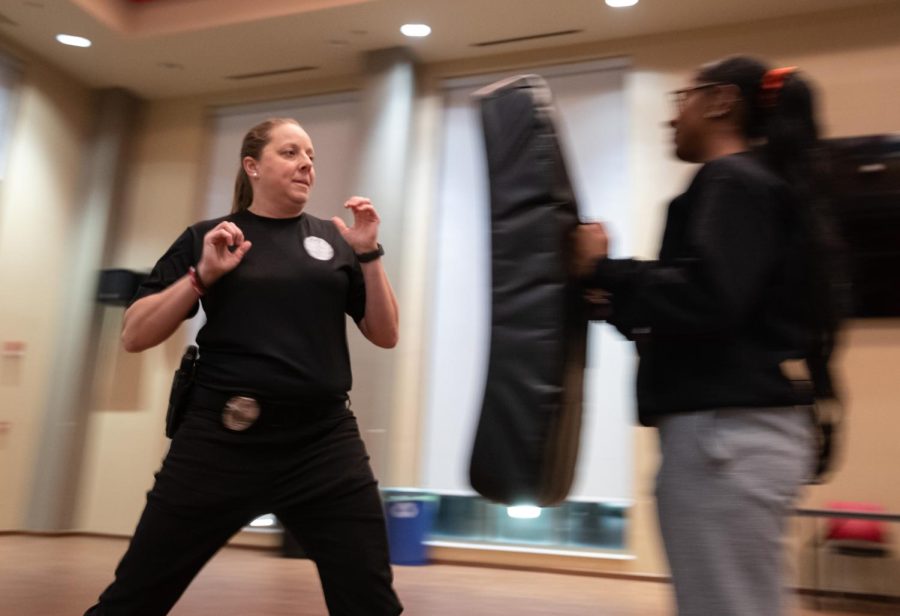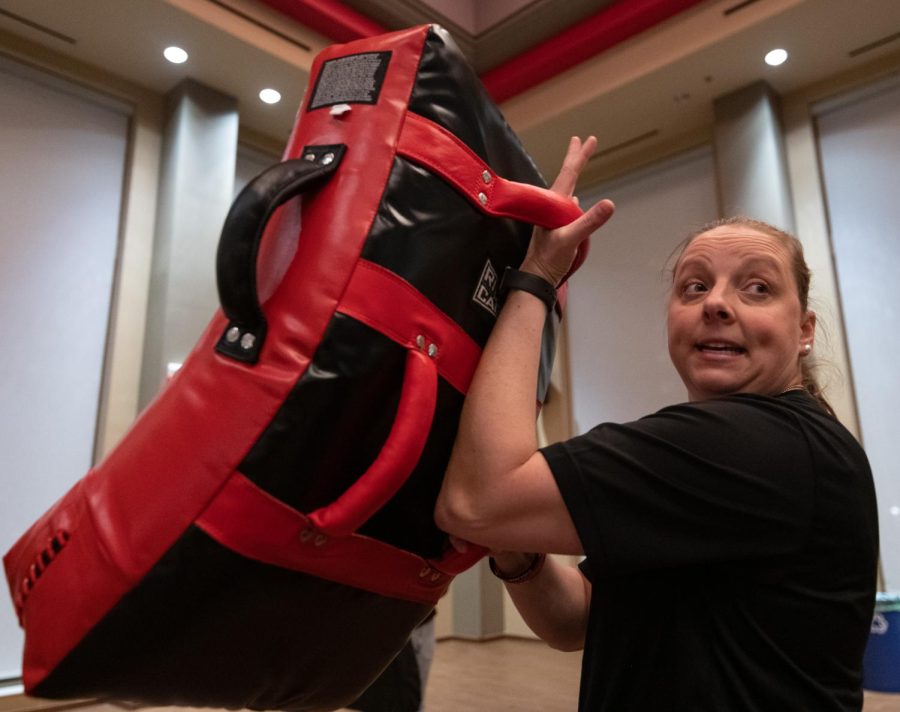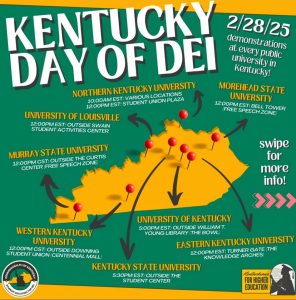‘We need to empower women’: Why Knot Us hosts self defense class
WKUPD Officer Melissa Bailey demonstrates how to use strike pads during a self-defense training session with members of Why Knot Us Too on Wednesday, March 8, 2023 in DSU Nite Class.
March 9, 2023
Why Knot Us Too, a program designed to improve the mental, emotional, environmental and academic success of women of color enrolled at WKU, hosted a self-defense class on Wednesday, March 8 at 6 p.m. in DSU Nite Class.“Why Knot Us Too is an organization that really invites black women, especially to plan events, bring people together, and to basically make more black women feel comfortable in a space together,” Tylia Standard, a representative from the organization, said. “I think [self-defense] is beneficial because not a lot of women know how to professionally defend themselves, and in the world we live in, we really need it […] It’s something that people should not take lightly, it’s just a need-to-know thing, no matter whether it’s actually happening on campus.”

The class itself was taught by Officer Melissa Bailey from the WKU Police Department, and it was instructed with the mindset that no prior training was required for the techniques. Bailey, in addition to self-defense classes, also manages the social media of the WKU PD and sends out emergency alerts should there be any danger to students, such as a natural disaster.
Bailey emphasized the necessity to protect the head, and to do that, to use the non-dominant hand protecting the face, so that the dominant hand can block and punch if need be. She also emphasized the need to maintain balance during the techniques.
The techniques included striking with the palm, aiming for the center of a potential attacker’s chest, while stepping back and preparing for other strikes. Another technique was a straight punch, with the first two knuckles on the fist striking first, with an untucked thumb, aimed at the center of the chest.
Another technique was the hammer fist strike, attacking like your arm was a hammer, aimed for the nose of an attacker. She also explained that the elbows could be used in a more close contact encounter and could allow for more rapid follow-up strikes for both arms, should the attacker be attacking from behind.

Another technique was kicking an attacker, designed to impact with the ball of the foot, as opposed to the toes, or landing with the top of the foot. Bailey also instructed choke defenses, emphasizing rapid and quick movements, from the front, and if the attacker is from behind, to turn the chin, bend knees, and use both hands to grab the attacker’s forearm, turn into the attacker, and stepping backwards, ducking your head through the hole created in the attacker’s grasp, while still holding onto the attacker’s arm to then pin them to the ground if possible.
“In every self-defense class I teach, [the goal is] giving them more tools or ways to protect themselves if they were ever put in a bad situation where they had to defend themselves or fight someone off,” Bailey said. “I think one of the biggest things is we are quiet about defending ourselves on are rapes and sexual assaults. We need to empower women to be in control of their bodies, and defend their bodies.”
WKUPD has put in place several measures to prevent such assaults from happening, such as them operating as any other agency, in that there are always active officers, and police escort services to wherever students need to go on campus, in addition to several e-phones around campus parking lots and structures for students.
“You can teach these to anyone,” Bailey said. “[…] It doesn’t matter how old or how young you are [to learn] these techniques.”
Reporter Damon Stone can be reached at damon.stone314@topper.wku.edu

















